The United Kingdom will send be sending additional troops to Afghanistan, Defence Secretary Michael Fallon has confirmed.
According to the Plymouth Herald, Sir Michael Fallon said details are currently being finalised. Speaking to the Herald, Mr Fallon said:
“We have 500 troops in Afghanistan but not in a combat role.They are supporting the Afghan Army.”
Operation Toral is the codename for British presence within Afghanistan post 2014 as part of NATO’s Resolute Support Mission.
The objective of the mission is to provide training, advice and assistance for the Afghan security forces and institutions as well as counter-terror and combat. The Resolute Support Mission envisages the deployment of approximately 12,000 personnel from NATO and partner nations in Afghanistan with the central hub at Kabul and Bagram Airfield supporting four spokes.
The spokes will be formed by Train Advise Assist Commands (TAACs), which will directly support four of the six Afghan National Army Corps. Train Advise Assist Command – Capital replaces the former Regional Command Capital; the redesignation took place in August 2014. TAAC East will assist the 201st Corps from FOB Gamberi and FOB Fenty located near Jalalabad, TAAC South will assist the 205th Corps from Kandahar International Airport, TAAC West will assist the 207th Corps in Herat and TAAC North will cover the 209th Corps from Mazar-i-Sharif. TAAC North is under the command of Brig. Gen. Harald Gante, German Army.Regional Command North was redesignated as TAAC North on July 1, 2014.
The Australian Government is currently considering a request from NATO to increase its deployment to Afghanistan due to the growing threat of Islamic State.
Presently the Australian Defence Force (ADF) maintains a contingent of 270 personnel working in mentoring and advisory roles under Operation Highroad.
Australian forces have been deployed to Afghanistan since the Coalition invasion in 2001. The current Operation Highroad commenced in July 2014 and is the Australian contribution to NATO’s Resolute Support mission, which replaced the previous International Security Assistance Force (ISAF) mission. Across the Middle East the ADF is also engaged in Operations Accordion, Manitou and Okra maintaining regional stability and combating the threat of ISIS.
The Prime Minister, Malcolm Turnbull, recently met with both James Mattis and General John Nicholson, commander of NATO forces, to discuss the situation while visiting Australian troops in the Middle East. Addressing the media in Sydney on Friday he said “we have been asked to consider additional resources, and we are actively considering that. We’re open to that”.
Defence Minister Senator Payne stressed Australia’s existing commitments while emphasising that “It is in Australia’s national interest to ensure that Afghanistan does not once again become a safe haven for terrorists.”
Testifying to the US Senate Armed Services Committee last Thursday General Nicholson offered a stern warning of the situation in Afghanistan where NATO could face a “stalemate” if additional resources are not committed. Highlighting the high casualty rate within the Afghan National Army due to poor tactics and the ability of the Taliban to launch strikes from safe havens across the Pakistani border, he urged the American government to work with NATO and regional allies to cut the Taliban’s support network and put more boots on the ground to support and develop Afghan forces. Time is of the essence, with winter coming to a close in Afghanistan marking the start of the more active fighting season.



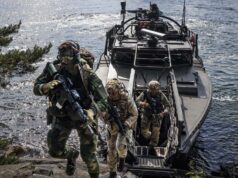
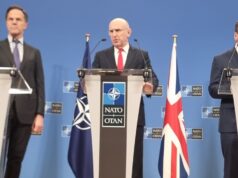
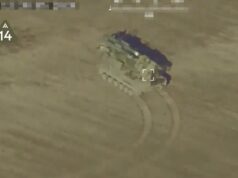
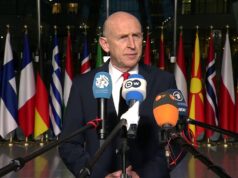
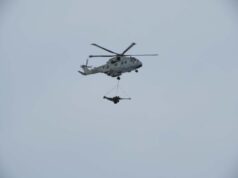

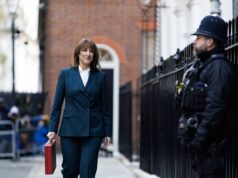
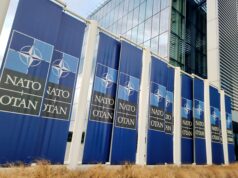
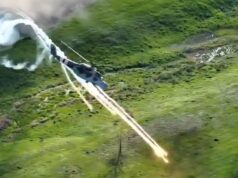
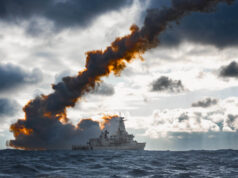

No.NO.NO
A total waste of money and more importantly British lives. We are not welcome and for obvious historical and cultural reasons if our leaders could read. To put it bluntly let them live in the middle ages if that is where they want to be but we want none of them here.
The level of apathy with a huge proportion of Afghan National Army soldiers is unreal. Many of them have no driving force and our efforts to train them are often fruitless as they do not care or do not want to learn, as it will mean that they are taking advice from us oppressive Westerners. I understand HMG’s reasoning behind putting more troops in to train them (aka not leave as big of a mess as Iraq) but whatever we do will immediately reverse as soon as we leave. Bases will get taken back by militias or insurgents, corruption in the government and the ANA will be rife (as is the case with ‘tribal thinking’ in a very tribal country) and the country will return to its original state. All at the expense of British lives.